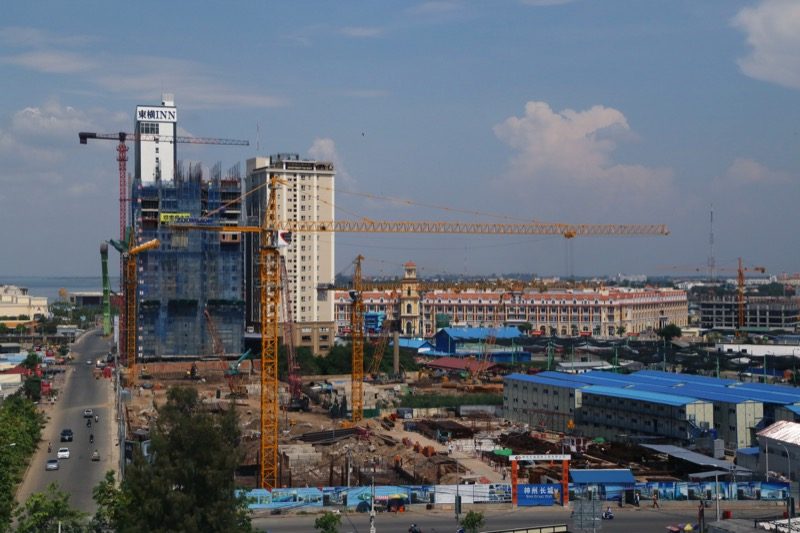The total value of construction projects approved last year more than doubled to $8.5 billion, according to figures released by the Land Management Ministry this week, amid heightened concerns of a credit bubble due to rapid growth in construction and real-estate loans.
The ministry’s report, released on Tuesday, shows that 2,636 projects were approved by the government last year, with their total investments valued at $8.5 billion. It says 2,305 projects were approved during the previous year, totaling $3.3 billion.

Reports released over the past year by leading institutions warned of the risks of such expansion. Cambodia’s economic growth could be threatened by ballooning credit, says an Asian Development Bank report from March. Private sector credit almost doubled in four years to more than 60 percent of GDP, it says, “much faster than peer Asian economies in their own economic take-off.”
In October, the World Bank released an economic update on Cambodia, repeatedly noting the risks associated with the construction boom and saying that “the construction and real estate sector needs to be closely monitored in order to maintain macroeconomic stability.”
Miguel Chanco, lead Southeast Asia analyst for the Economist Intelligence Unit (EIU), said on Wednesday that the amount of investment mattered less than how it was being spent.
“If a large chunk of these funds are being directed to the luxury property market in Phnom Penh, for example, then I’d be worried, as that segment of the market has looked frothy for some time,” Mr. Chanco said in an email.
“We’ve long been concerned about the overly rapid pace of credit growth in Cambodia,” he added. “Banks are particularly exposed to the property sector as the proportion of outstanding loans in construction, real estate and mortgages to total loans is hovering at multi-year highs.”
The National Bank of Cambodia, the country’s central bank, has initiated reforms such as increasing banks’ minimum capital requirements, Mr. Chanco noted.
But “the central bank’s hands are tied in one huge respect—the high level of dollarization in the economy limits the effectiveness of traditional monetary policy tools,” he added.
In Channy, president of Acleda Bank, the country’s largest financial institution, said on Tuesday that the bank provided $180.4 million in housing and real estate loans last year, making up 6.5 percent of its total loans and up 18.7 percent from $152 million in 2015.
Mr. Channy said his bank’s lending policies were solid.
“We don’t deal in speculation. Our policy is to lend to homebuyers who stay in that home,” he said, adding that he could not speak for other banks.